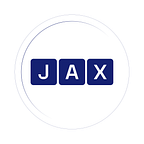Can blockchain improve governance systems?
The word ‘blockchain’ has become synonymous with cryptocurrency. But can blockchain technology be used for something more than that? Read more to find out how blockchain can be used to improve governance systems.
For many people, the word ‘blockchain’ is almost synonymous with ‘cryptocurrency’ or ‘digital money,’ and for good reason. By far the most popular and famous use of this relatively new technology is in cryptocurrencies.
But as some of you may very well know, blockchain technology is far more versatile than just a distributed ledger that can be used for more than just the tracking of digital money and transactions.
Ask any blockchain expert and they will tell you dozens of examples of what blockchain technology can be used for. From smart contracts and registration of digital identities to the tracking of real-world products in supply chains. Seemingly endless applications of this technology can be used to improve and streamline processes both in the private and public sectors.
This is specifically what we want to talk about in this article, which will detail some practical uses that blockchain technology has, which can dramatically improve certain governance systems.
Property and ownership rights
In this specific case of property rights, we are referring to land ownership rights.
Much of the world’s lands and property are undocumented. Land ownership can be a tricky thing to track, this is especially true in developing countries where existing infrastructures and systems used to track land ownership is outdated and inefficient. In some countries where the systems that document ownership is the weakest, data is severely vulnerable to altercation. Land disputes are an ever-present issue due to the lack of proper documentation of ownership, fraudulent claims, and a broken bureaucratic system.
Also, if there is not one linear transfer of ownership of land from one owner to another, it leads to disputes and/or fraudulent claims that are timely and costly for all parties to settle.
This is where blockchain technology can provide an elegant and practical solution to the problem of ownership rights. Because the blockchain is an immutable, secured, and shared ledger, adding data such as landowners and land ownership titles to the blockchain seems like an obvious solution. This would provide the much needed linear transfer of ownership that would eliminate the confusion regarding who owns what piece of land. Furthermore, fraudulent claims will also be significantly reduced as anyone can check the legitimacy of the ownership claim on the blockchain.
As an added bonus, the blockchain also reduces friction from real-estate transactions, notary, management, and reduces overall bureaucratic costs.
Voting
Something that is central to many governance systems from around the world is voting and the ability to conduct legitimate elections. In more recent times, the legitimacy of many elections from around the world has been brought into question, which in turn, has caused much confusion, anger, and turmoil.
Additionally, election meddling by nation-states against other nation-states has been a problem for quite some time. Again, this also questions the legitimacy of an election outcome, which brings with it doubt.
According to MIT technicians “online voting systems are vulnerable to serious failures: attacks that are larger scale, harder to detect, and easier to execute than analogous attacks against paper-ballot-based voting systems.” This poses a real, serious emergency that needs to be addressed immediately.
Blockchain technology is able to greatly help in securing elections and voting systems. Because the blockchain itself is secure and immutable, attacks on a blockchain-based election system are virtually impossible. Once voting ballots have been cast, they cannot be tampered with or changed to a different result.
Also, giving each voter a cryptographic key, which acts as a digital fingerprint and allows them to vote means that instances of voter fraud will also be eliminated, as only voters who hold a key would be able to vote.
Securing elections with blockchain will result in a more legitimate and less disputable election outcome, that is also far less vulnerable to outside attacks. This means that voters will be more likely to accept the outcome and therefore problems stemming from election fraud or tampering will be less likely.
Development and effectiveness
Governments from all around the world, no matter if they are from more or less developed countries face problems with funding disbursement. This is especially worrying when funding allocated for economic and human development projects does not reach its destination. According to the UNDP, “30% of development aid fails to reach its destination.” This is due to corruption, misuse of funds, the cost to operate the entire logistics of fund disbursement, and lack of transparency.
Everyone has an interest in improving effectiveness and efficiency, but how does one achieve this on a large scale? Governments need a new system that can effectively track the allocation of funds to communities, limit corruption, and diligently report on how the current efforts to improve economic and human development is doing.
Because the main properties of blockchain technology are security, decentralization (transparency), and verifiability — it has the opportunity to curb corruption and the misuse of funds. This means that more funding that is allocated for a certain purpose is able to reach its destination.
Also, through blockchain’s immutable and trusted ledgers as well as smart contracts that automate service transactions, it eliminates the need for inefficient or costly intermediaries. In essence, making payments and disbursing of money quicker and more cost-effective
And lastly, the blockchain is also a great tool that can be used to track results and measure the impact of the aid being provided. This means that funding can continuously be looked at and re-allocated more swiftly.
Don’t miss any announcement by subscribing to our social media accounts:
Twitter: https://twitter.com/CommunityJax
Facebook: https://www.facebook.com/network.jax/
Telegram Channel: https://t.me/jax_network
Official Group: https://t.me/jax_chat
